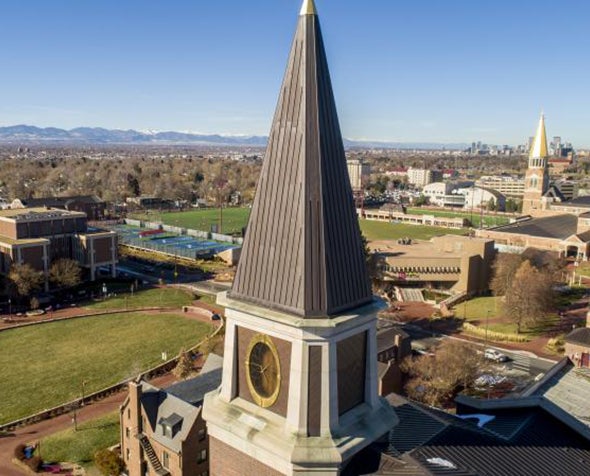University of Denver Receives Grant from European Commission for Environmental Law & Policy Course Development
The European Commission, the executive branch of the European Union, has awarded a €300,000 ($350,000) grant to four universities including the University of Denver to develop a “transatlantic-based” law school course that will compare European Union and United States climate change and energy transition policies, laws, and practices.
The three-year grant, which will run from 2019-2021, has been awarded to the University of Denver Sturm College of Law, the Faculties of Law at the University of Copenhagen, Denmark, and the University of Oslo, Norway, and the University of Colorado Boulder.
The Jean Monnet Program grant, which honors the legacy of the Frenchman referred to as “the father of Europe,” will fund the development of course materials, lectures, and European and American field trips by three leading climate change and energy transition (i.e., from fossil fuels to renewables) experts, Professor Catherine Banet of the University of Oslo, Professor Anita Rønne of the University of Copenhagen, and Professor Don Smith of the University of Denver. Felicia Naranjo Martinez, Executive Director of the European Union Center of Excellence at the University of Colorado, will oversee the development and implementation of the project.
In awarding the grant the European Commission said, “Addressing climate change and the need for transition to clean and sustainable energy resources are major challenges facing the global society,” adding that the “extended series of course will help towards a better understanding of the corresponding policies and the different approaches to climate change and the energy revolution in the US and EU.”
The first-of-its-kind course, which will be launched in January 2019, will include eight two-hour simultaneous video conferencing class sessions where students will meet in a virtual classroom. During these eight sessions, the professors will lecture about and compare the climate change- and energy transition-related policies, laws, and practices of the European Union (Rønne), the European Economic Area (Banet), and the United States (Smith). The European Commission described the three professors as having “a high level of expertise in the related issues. They all are deeply involved in European integration studies, both concerning the state of affairs in energy and in environmental policies of the EU.”
During the semester-long course, students will work in groups (e.g., each group of six will consist of two students from Copenhagen, Denver, and Oslo) to analyze and address a particularly timely issue associated with climate change and the energy transition. During the final week of the course in April 2019, students and professors will meet in person in Copenhagen where each group will make a presentation to everyone in the course as well as Danish climate change and energy transition experts. The in-person gathering will be capped with a field trip to a Danish island, Samso, that is 100 percent powered by renewable energy. In 2020 the in-person gathering will happen in Denver and in 2021 in Oslo.
In addition to the virtual classroom, and the opportunity for students to work across EU and US “boundaries,” the grant will provide funding for students to participate in the “end of course” in-person gatherings. This will allow students who have worked in groups to meet each other as well as their professors and develop the foundation for longer term personal and professional relationships.
“In order for the world to effectively address climate change, the EU and US must gain a better understanding of the capacities of each and the underlying policies that drive approaches to climate change and the energy transition,” Professor Smith said. “For example, the EU’s approach is driven more by a ‘top down’ method where the EU sets the goals. On the other hand, the US approach in the next few years will be set by a ‘bottom up’ method where states, such as California and Colorado, will take the lead rather than the federal government.”
The universities are located in cities and regions known for ambitious climate change and energy transition efforts. Copenhagen is one of the most sustainable cities in the world; Denver, located near the US National Renewable Energy Laboratory, has committed to using only renewable energy by 2030; and Oslo’s energy is largely produced today by renewables.
For more information about the key project players:
- Professor Catherine Banet
- Felicia Naranjo Martinez
- Professor Anita Ronne
- Don Smith





